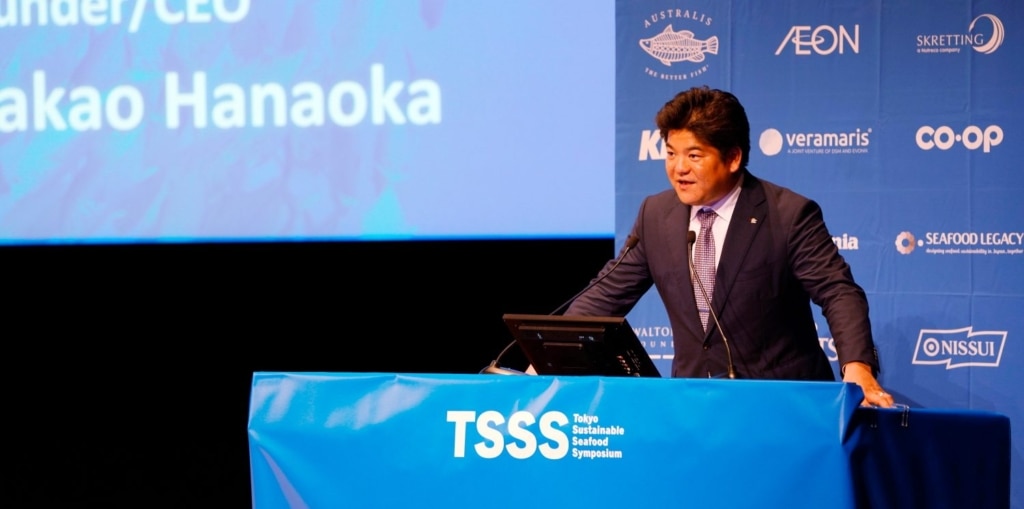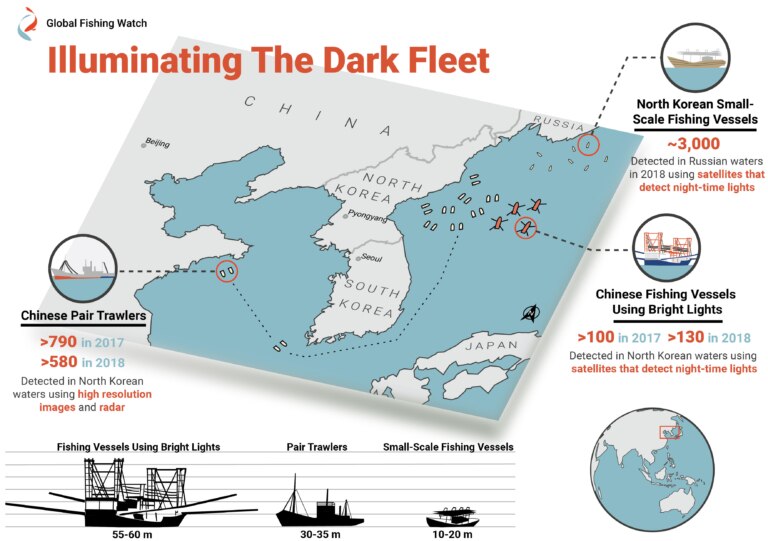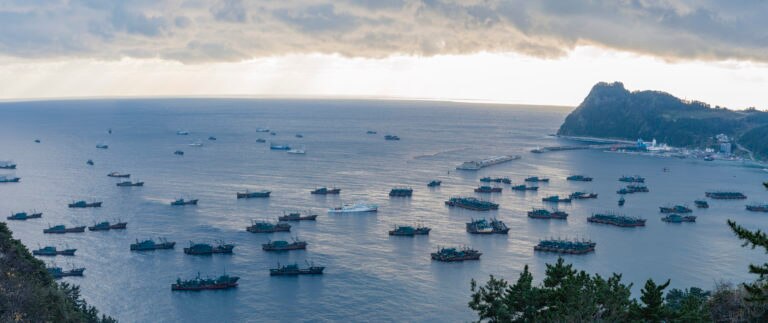
Enactment of the “Domestic Trade of Specific Marine Animals and Plants Act” and Accelerating the Process of Achieving Goal 14 of the SDGs
Hello everyone, I am Wakao Hanaoka, CEO of Seafood Legacy.
The “Domestic Trade of Specific Marine Animals and Plants Act,” a bill designed to prevent the importation and distribution of seafood that is highly likely to have been caught by IUU (Illegal, Unreported, and Unregulated) fisheries, was passed and enacted in the Diet on December 4th, 2020. This is a step in the right direction for Japan, a country with one of the world’s largest seafood markets, to fulfill our international obligations in this regard. We welcomed this move by the Japanese government and the newly passed legislation will serve as the cornerstone for a domestic market in which companies that comply with the rules will be recognized as legitimate businesses.
As a core member of the Anti-IUU Forum Japan, and an Expert Advisor of the Cabinet Office Council for Promotion of Regulatory Reform Agriculture Forestry and Fisheries Working Group, as well as a member of the Committee of Fishery Agency Catch Documentation Working Group, I have been closely involved in this legislative process. Therefore, I am especially delighted to see that it has been successfully enacted.
The Risk Posed by IUU Fisheries to Japan
In recent times, there have been calls for IUU fisheries that operate without complying with domestic and international regulations to be eradicated around the world in view of the serious threat they pose to the sustainable use of water resources and the conservation of marine ecosystems globally. Reports have estimated that up to 31% of our total global catch is caught by illegal or unregulated fisheries. Under Goal 14 “Life Below Water” of the Sustainable Development Goals (SDGs) adopted at the United Nations Sustainable Development Summit 2015, Target 14.4 calls for “ending overfishing, illegal, unreported and unregulated (IUU) fishing, and destructive fishing practices, as well as the implementation of science-based management plans.”
IUU fisheries do not only concern countries far away from Japan. In fact, the largest illegal fishing operation in history was carried out by vessels of Chinese origin discovered very close to Japan. These vessels were involved in Japanese flying squid fishing in North Korean waters as well as at around Yamato-Tai locates in the EEZ of Japan, which precipitated a sharp decline in the squid stock of the Sea of Japan. At the same time, overfishing and IUU fishing of neon flying squid and Pacific saury by vessels of neighboring countries have also been reported on the Pacific coast, and in each of these cases, the interests of Japanese fishermen and logistics operators responsible for processing and distribution have been harmed.
Moreover, in many instances, illegal catch obtained in the waters of Japan may also be landed in neighboring countries and mixed with other batches of legal catch before being exported to the Japanese market for consumption in Japan. A case in point is eel, where around 50% of all eels consumed in Japan is believed to have been sourced from poachers, unreported fisheries, and smugglers, with the Japanese market becoming a hotbed for many illegal activities. Overall, reports suggest that up to 36% of all imported seafood, or around half of the total volume of seafood consumed in Japan, may be related to IUU fisheries.

Source: Global Fishing Watch
The Trends of Legislative Process at the Catch Certification System Study Committee of the Fisheries Agency
The Committee of Fishery Agency Catch Documentation Working Group started to convene regularly from the summer of 2019. The members of this committee are individuals from different sectors of the fisheries industry who came together to discuss various issues. International environmental NGOs also participated in the committee meetings, and I had the opportunity to be part of discussions between NGOs and the industry. I was struck by the fact that several members of the committee with international businesses that are downstream in the supply chain recognized the importance of adopting measures to mitigate the risks of IUU fisheries in Japan, something by which I was tremendously encouraged.
On the other hand, members of the committee who are closer to producers were naturally more cautious about the additional on-site responsibilities. We listened closely to their concerns and understood deeply the importance of developing systems to cushion the burden not only on production sites but along the entire supply chain, as well as the key role of smart fisheries that harness IoT and AI in relieving this burden.
It was very disheartening at first when the scheduled enactment of the law was postponed by over half a year. However, the committee’s Chairman and Secretariat made some adjustments which allowed us to acquire a deeper understanding of the situation in Japan as well as the circumstances in the West during this time. We had more in-depth discussions on issues of traceability and our different opinions gradually converged into a consensus.
The Legislative Process at the Cabinet Office Council for Promotion of Regulatory Reform Agriculture Forestry and Fisheries Working Group
The Cabinet Office Council for Promotion of Regulatory Reform Agriculture Forestry and Fisheries Working Group brought together members with a diverse range of expertise and a comprehensive set of different perspectives. The working group interviewed the Director-General of the Fisheries Agency periodically on the progress made by the Committee of Fishery Agency Catch Documentation Working Group and requested him to consider specific improvements based on the current situation.
The Committee focused solely on the issue of the distribution of domestic seafood products, which resulted in eventually no discussions on the risks of IUU to be caused by import. However, the damage from illegal fishing and overfishing in Japanese waters by vessels of neighboring countries became increasingly apparent, which triggered urgent concerns and greater anticipation that this system would address the problem. The members of the Cabinet Office Council for Promotion of Regulatory Reform Agriculture Forestry and Fisheries Working Group made a series of points on this matter, which led to the importance of the balance of it.
In addition to our approval of the enactment of this legislation, there was also broad consensus at a recent meeting of the Working Group to push strongly for a “lower reliance on paper-based transactions and records through legislative action in view of the imminent abolishment of physical seal stamping and the establishment of a Digital Agency” as far as the collection and communication of catch-related information are concerned as our next step towards a digitalized future for the industry. Although this meeting was held online, I was encouraged to see the Director-General of the Fisheries Agencies nodding in agreement on the screen.

Chinese fishing vessels crossing Korean waters
The Legislative Process at the Anti-IUU Forum Japan
At the same time, the Anti-IUU Forum Japan which comprises six organizations including Seafood Legacy was involved in various efforts to ensure that this legislative process was able to proceed smoothly. These efforts included the submission of joint proposals to the Fisheries Agency, the organization of workshops for journalists as well as other related events, and the provision of information to affiliated parties.
We also drew on our extensive international network to encourage NGOs and governments in the EU, the US, and Asian countries to support this initiative in Japan and establish an international collaborative framework. The EU and the US are the two largest import markets for seafood in the world and they have already introduced systems aimed at regulating the import of seafood that is potentially related to IUU fisheries. With Japan becoming part of this collective effort as the world’s third largest seafood import market, countries that account for over half of the global seafood market are now moving to eliminate the threat posed by IUU fisheries. This allows the global market as a whole to send a strong message to countries and regions where IUU fisheries are widespread.
When the law was enacted on December 4th, the Anti-IUU Forum Japan released a joint statement on the “Domestic Trade of Specific Marine Animals and Plants Act .” This statement includes proposals on the next steps that should be taken so that companies that comply with the rules can be recognized as legitimate businesses in the domestic market. These proposals include selecting species to be covered based on fair and clear criteria, reducing the workload of operators and enhancing traceability through electronification, and pushing international collaboration forward.
The Next Steps for Mitigating the Risk of IUU Fisheries
I am delighted that we were able to overcome various challenges on the road to the eventual enactment of this legislation. I appreciate the hard work of everyone who was part of this endeavor.
However, the enactment of this legislation is only the first step. In the next two years until the new law comes into effect, a highly sensitive process awaits us. We need to consider how we can make this system more targeted and robust by finalizing individual details such as the selection criteria for targeted species, the catch-related information that must be reported, the means of communicating information and surveying waters, etc. However, instead of harmonizing with specific interest groups behind closed doors, we believe that it is imperative for us to make this a transparent process facilitated by vigorous discussions carried out in a public setting where the voices of multiple stakeholders, including those of on-site producers and especially younger individuals who will be responsible for the future, can be heard. Moving forward, we remain committed to the elimination of the threat to the sustainable use of our marine resources posed by IUU fisheries and the creation of a domestic market in which companies that comply with the rules will be recognized as legitimate businesses.

Being a two-wheels with the Revised Fisheries Act, It will Transform Fisheries Industries into a Growth Industry
Even the enactment of the above “the Domestic Trade of Specific Marine Animals and Plants Act” was a big thing, the Fisheries Act which had undergone major revisions for the first time in 70 years came into effect a few days ago on December 1st.
In my view, the coming into effect of the Revised Fisheries Act is the first step towards breaking away from the current business model that has existed for a long time, but which has failed. Under this model, companies compete to overfish juvenile fish and endangered fish which are sold at low prices, resulting in the decline of fishery resources and fishery workers, and the need for large subsidies to keep the industry afloat. The implementation of the Revised Fisheries Act marks the beginning of a new model that will transform the industry into one that is capable of sustainable growth by restoring the fishery resources in Japanese waters through resource management that is based on scientific evidence and precaution-based measures, and by utilizing these resources systematically, strategically, and productively from a holistic perspective.
The combination of this “Revised Fisheries Act” and the “Domestic Trade of Specific Marine Animals and Plants Act ” signals the dawn of a two-pronged approach to transform the fisheries industry into a growth industry by laying the groundwork for the future of both production and distribution sites. By continuing to pursue this two-pronged approach in the right direction, Japan’s fisheries industry in particular will be able to benefit greatly as an industry located in waters that harbor a vibrant ecosystem within the exclusive economic zone of a country with one of the three largest fishing grounds in the world. This will not only serve as the bedrock of Japan’s domestic food security strategy that has come under pressure from unstable global conditions, but it will also offer a prosperous future where food can continue to be put on the dining table of the international community as food shortages due to the population explosion in the world appear to be inevitable.
When Seafood Legacy was founded in 2015, we described in the first chapter of our Theory of Change our belief that the basic groundwork for the future of both production and distribution sites should be laid as the first step towards achieving our mission of “designing seafood sustainability in Japan, together.” Guided by the hard work of many of our predecessors, we are able to celebrate the historic progress made today on both fronts as we continue to support each other and collaborate with various stakeholders. Moving forward, we will continue working with everyone on the ground to improve the efficacy of the rules for sustaining a prosperous relationship of fishery, local society and marine environment and ensure that they can be utilized most effectively.
December 4th, 2020
Seafood Legacy Co., Ltd.
Wakao Hanaoka





